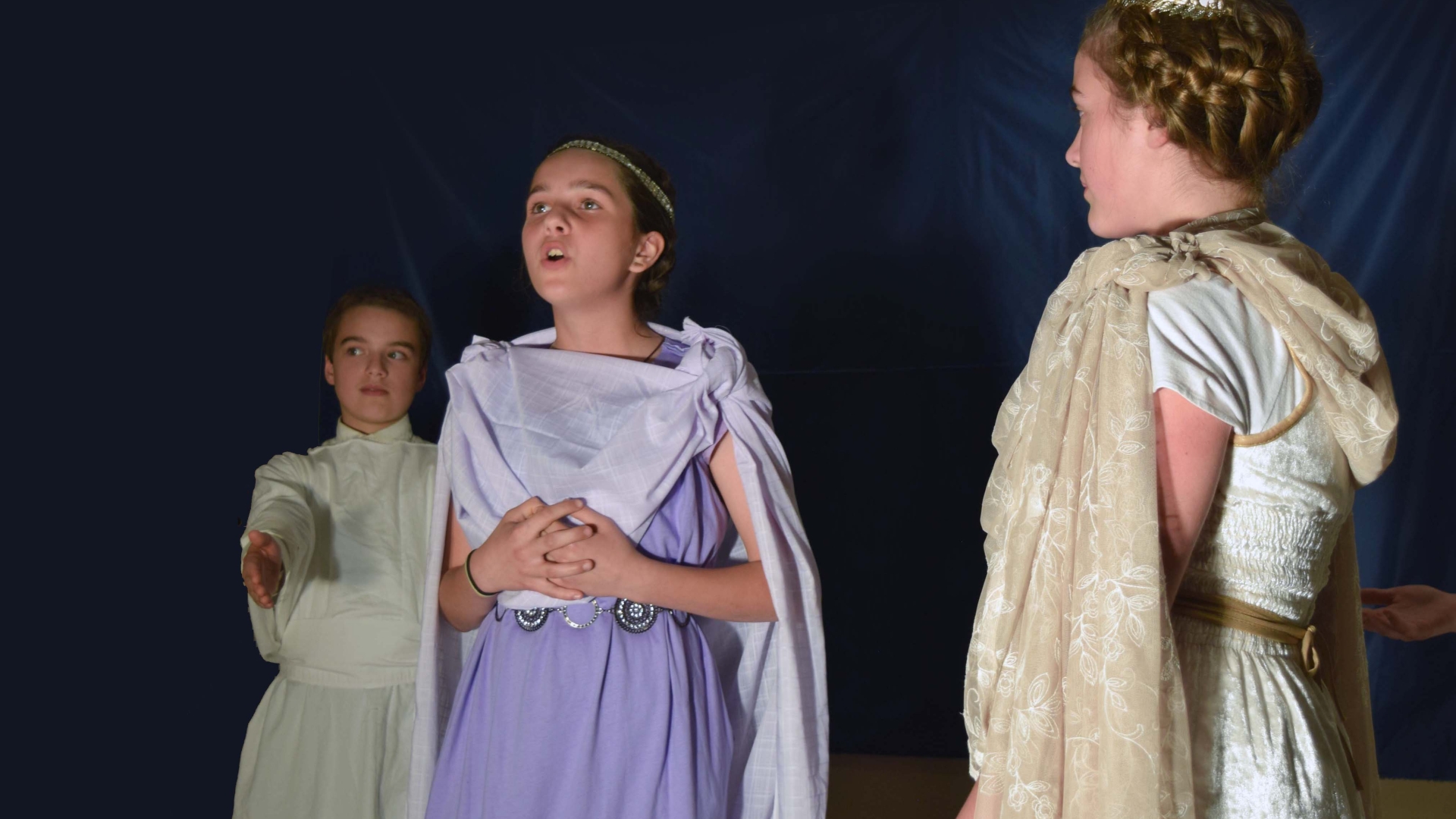Iphigenia in Aulis on the SJA Stage

Fifth and Sixth graders perform the Greek tragedy, Iphigenia in Aulis by Euripides.
The students of St. Joseph’s Academy have always studied classical literature, including Greek mythology. This year, the fifth and sixth graders are studying and then performing the Greek tragedy, Iphegenia in Aulis by Euripides. This play presents a perfect example of how Greek gods controlled mortal men who could not escape their powers or whims. Sometimes the Greek gods went so far as to demand a human sacrifice to appease their displeasure and men were forced to obey, no matter how much they personally objected. This is the case in Euripides’ moving drama.
Before the play opens, Agamemnon, King of Greece, had killed a stag in a forest sacred to Artemis, the goddess of hunting. To punish him, Artemis decreed that he must sacrifice his eldest daughter, Iphigenia, before the winds would blow again. Agamemnon’s fleet was thus becalmed at the island of Aulis, and his army, anxious to set off for the Trojan War, was about to revolt against his leadership. Despite his love for his daughter, Agamemnon was eventually compelled to do as Artemis commanded.
There are several versions of the myth about Iphigenia, all of which have inspired later poets, musicians, and dramatists to retell her story. In some of these, Artemis relents at the last moment and transports Iphegenia to a distant land to be a priestess. In Euripides’ play, however, Iphigenia accepts her fate. Her mother, Clytemnestra, is less understanding. She never forgave her husband for sacrificing their daughter, and the family was cursed with a later history of revenge and murder as dramatized by Sophocles in Electra and Aeschylus in his Oresteian Trilogy.










